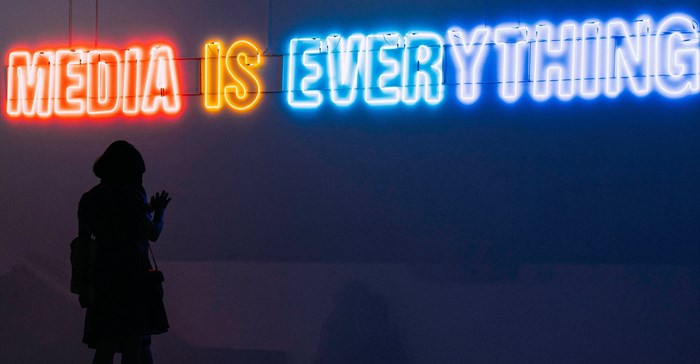#OrchidsandOnions: Ukraine weaponises web

The power of social media and the internet to influence national events and even bring about regime change has been steadily building over the past decade. The revolutionary changes of the Arab Spring were fuelled by social media, which proved not only to be a communication tool, but also a rallying force for anti-government protesters.
However, the ongoing Russian war on Ukraine is the first time a conflict has not only featured so prominently on social media, but it is the first time that the medium has been used on such a scale as a weapon.
And at this stage of the conflict, the Ukrainians are well ahead of the Russians on this particular cyber battlefield.
Backed by Ukrainian tech business people and run by savvy communicators and marketers, the Ukrainian information offensive on the internet has been something never seen before.
The problem with many of the social media posts by a wide swathe of official and nonofficial Ukrainian accounts is that they are proving either to be fake news or misleading.
Some examples are the supposed massacre of the 13 Ukrainian troops on Snake Island by the Russians. When called upon by the Russians to surrender, the men allegedly told the warship to “Go f... yourself”. It seems, though, that the men were taken prisoner.
Then there was the false story about the “Ghost of Kyiv”– supposedly a Ukrainian fighter ace who shot down six Russian planes in his Mig-29 fighter on the first day of the battle. That has since been debunked.
There was also drone footage that purported to show a Russian armoured vehicle being destroyed. Problem: This was from the conflict in Syria. Some so-called video evidence, flighted by Western media, absurdly turned out to be from a video war game.
Yet, elsewhere, the Ukrainians did brilliant propaganda. That word has a dirty tone to it but, effectively, it is just another form of advertising or marketing. You’re selling patriotism, to rally your people, or emotion to confuse your enemies and win you support from elsewhere, both moral and physical.
Heading this offensive has been the country’s president, former comedian Volodymyr Zelensky, who has a presence in front of the camera and is either brilliant with words or has very talented speechwriters. Images have been sent across the world of him, wearing a flak jacket, out and about with his troops... and very few seem to be bothered about the fact that these were taken more than a year ago.
However, he seemingly has stayed at his post and his briefings to journalists, in army green T-shirt in a building protected by sandbags, have been riveting.
This is reality TV in the very real sense. People are dying, fake bits and pieces notwithstanding – and Kyiv occupied not only the moral high ground from the beginning, but has used it to stunning effect.
Some of the things the Ukrainians have done cut straight to the heart... as when they offered to allow Russian mothers to collect their sons who had been captured.
In another video, a young captured Russian conscript broke down in tears when talking to his mother, in a link facilitated by his captors. A Ukrainian woman puts her arm around him to comfort him and assure his mother he will get home safely.
It is a stunning way of emphasising the humanity of a people – would you comfort a soldier who had been trying to kill you and take over your country? – and plant the seeds of anger among ordinary Russians.
Ukrainians are just like you. But the war affects just everything: how we live, how we love and how we take care of the people most dear to us. Help us save lives. Demand your governments to act now. Together, we can and must stop Putin ✊����#StandWithUkraine #CloseTheSky pic.twitter.com/WGzogeCVlJ
— Ukraine / Україна (@Ukraine) March 7, 2022
A patriotic rallying film also shows Ukrainian marketing at its most effective. It could be cheesy but, when you look at it, you know real people – soldiers and civilians – are dying because of the Russian invasion - so it hits home, even if you are thousands of kilometres away.
It is through the thoughts and words of a soldier that the subtle “fight them in the fields” type of Churchillian message is conveyed.
Don’t be scared. Pat my dog for me. How is the kid doing? Tell dad to take care of him and mommy.
Then the soldier tells the various people of Ukraine that they [the troops] know the rest of the country has their back. It ends with a group of steely, determined soldiers looking into the camera above the line: Come back alive.
It is the best type of propaganda because it plays on emotions. Propaganda is marketing and this is good marketing. But I won’t give it an Orchid for two reasons:
First – there is a lot of fake news – on both sides. Second – real people are really dying and that doesn’t deserve an award.














































